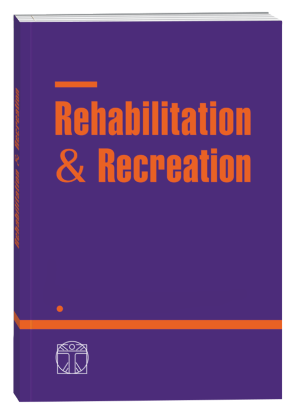EFFECTS OF PLANT-BASED DIETS ON CARDIOVASCULAR RISK
DOI:
https://doi.org/10.32782/2522-1795.2023.15.23Keywords:
nutrition, diet, cardiovascular, vegetable, metabolic.Abstract
Metaboloc diseases such as coronary heart disease, stroke, obesity, and type 2 diabetes mellitus, represent a significant burden on life, health, and the economy. About half of the deaths from cardiovascular disease caused by metabolic disorders could be prevented by the correction of nutrition. Plant-based (vegetarian and vegan) diets (PBD) are an effective method for improving nutrient absorption. The purpose of the present study is a theoretical analysis and generalization of literary sources justifying the use of various diets in cardiovascular diseases (CVD). Research material and methods. In this review, we have explored the most recent literature data on the effect of a PBD on the risk of development, course, and complications of CVD, with a particular focus on systematic reviews and meta-analyses, especially those based on randomized clinical trials. Results from observational studies were included as supporting evidence. Results of the research. An analysis of the literature strongly suggests that plant-based diets can reduce the risk of CVD by approximately 40%, and the risk of cerebrovascular disease by 29%. PBD also cut the risk of developing metabolic syndrome and type 2 diabetes by about half. Well-planned PBD are beneficial and effective for weight and glycemic control, and provide metabolic and cardiovascular benefits, including reductions in blood lipids and blood pressure. Several possible mechanisms may explain the beneficial metabolic effects of PBD: decreased caloric intake, increased fiber intake, decreased saturated fat and cholesterol intake, increased polyunsaturated and monounsaturated fatty acid intake, increased antioxidant and micronutrient intake, increased plant protein and sterols intake. Conclusions. PBD are an effective means of prevention and treatment of metabolic diseases, cardiovascular pathology, as they show effectiveness in normalizing blood pressure and indicators of atherogenesis. The use of PBD as a method of prevention and treatment of metabolic diseases should be promoted for patients with CVD.
References
Mozaffarian, D. Dietary and policy priorities for cardiovascular disease, diabetes, and obesity: A comprehensive review. Circulation 2016, 133, 187–225.
GBD 2015 Risk Factors Collaborators. Global, regional, and national comparative risk assessment of 79 behavioural, environmental and occupational, and metabolic risks or clusters of risks, 1990–2015: A systematic analysis for the Global Burden of Disease Study 2015. Lancet (Lond. Engl.) 2016, 388, 1659–1724.
Micha, R.; Peñalvo, J.L.; Cudhea, F.; Imamura, F.; Rehm, C.D.; Mozaffarian, D. Association between dietary factors and mortality from heart disease, stroke, and type 2 diabetes in the United States. JAMA 2017, 317, 912–924.
Wang, F.; Zheng, J.; Yang, B.; Jiang, J.; Fu, Y.; Li, D. Effects of vegetarian diets on blood lipids: A systematic review and meta-analysis of randomized controlled trials. J. Am. Heart Assoc. 2015, 4, e002408.
Huang, R.-Y.; Huang, C.-C.; Hu, F.B.; Chavarro, J.E. Vegetarian diets and weight reduction: A meta-analysis of randomized controlled trials. J. Gen. Intern. Med. 2016, 31, 109–116.
Dinu, M.; Abbate, R.; Gensini, G.F.; Casini, A.; Sofi, F. Vegetarian, vegan diets and multiple health outcomes: A systematic review with meta-analysis of observational studies. Crit. Rev. Food Sci. Nutr. 2017, 57, 3640–3649.
NCD Risk Factor Collaboration (NCDRisC). Trends in adult body-mass index in 200 countries from 1975 to 2014: A pooled analysis of 1698 population-based measurement studies with 19·2 million participants. Lancet (Lond. Engl.) 2016, 387, 1377–1396.
The Global BMI Mortality Collaboration. Body-mass index and all-cause mortality: Individual-participant-data meta-analysis of 239 prospective studies in four continents. Lancet (Lond. Engl.) 2016, 388, 776–786.
Wright, N.; Wilson, L.; Smith, M.; Duncan, B.; McHugh, P. The BROAD study: A randomised controlled trial using a whole food plant-based diet in the community for obesity, ischaemic heart disease or diabetes. Nutr. Diabetes 2017, 7, e256.
Hayward, R.A.; Reaven, P.D.; Emanuele, N.V.; VADT investigators. Follow-up of glycemic control and cardiovascular outcomes in type 2 diabetes. N. Engl. J. Med. 2015, 373, 978.
Montalcini, T.; De Bonis, D.; Ferro, Y.; Carè, I.; Mazza, E.; Accattato, F.; Greco, M.; Foti, D.; Romeo, S.; Gulletta, E.; et al. High vegetable fats intake is associated with high resting energy expenditure in vegetarians. Nutrients 2015, 7, 5933–5947.
Moore, W.J.; McGrievy, M.E.; Turner- McGrievy, G.M. Dietary adherence and acceptability of five different diets, including vegan and vegetarian diets, for weight loss: The New DIETs study. Eat. Behav. 2015, 19, 33–38.
Barnard, N.D.; Levin, S.M.; Yokoyama, Y. A systematic review and metaanalysis of changes in body weight in clinical trials of vegetarian diets. J. Acad. Nutr. Diet. 2015, 115, 954–969.
Huang, R.-Y.; Huang, C.-C.; Hu, F.B.; Chavarro, J.E. Vegetarian diets and weight reduction: A meta-analysis of randomized controlled trials. J. Gen. Intern. Med. 2016, 31, 109–116.
Zoungas, S.; Chalmers, J.; Neal, B.; Billot, L.; Li, Q.; Hirakawa, Y.; Arima, H.; Monaghan, H.; Joshi, R.; Colagiuri, S.; et al. ADVANCE-ON Collaborative Group Follow-up of blood-pressure lowering and glucose control in type 2 diabetes. N. Engl. J. Med. 2014, 371, 1392–1406.
Forouzanfar, M.H.; Liu, P.; Roth, G.A.; Ng, M.; Biryukov, S.; Marczak, L.; Alexander, L.; Estep, K.; Hassen Abate, K.; Akinyemiju, T.F.; et al. Global burden of hypertension and systolic blood pressure of at least 110 to 115 mm Hg, 1990–2015. JAMA 2017, 317, 165–182.
Downloads
Published
How to Cite
Issue
Section
License

This work is licensed under a Creative Commons Attribution-NonCommercial-NoDerivatives 4.0 International License.












